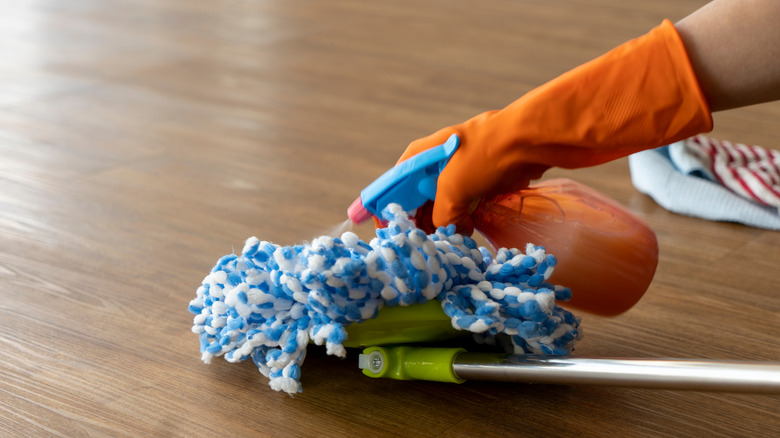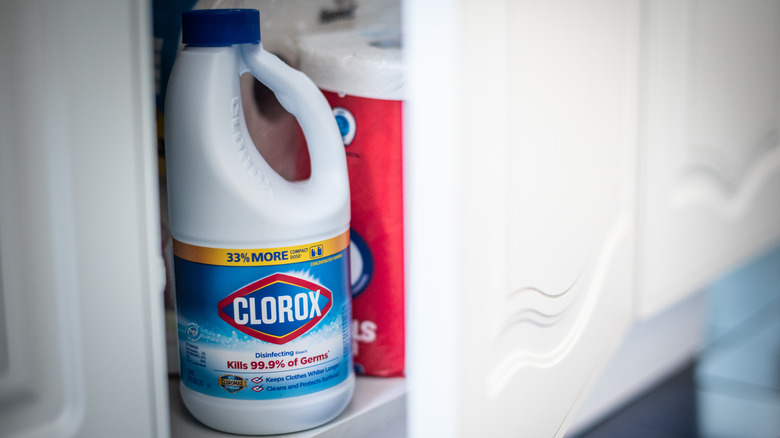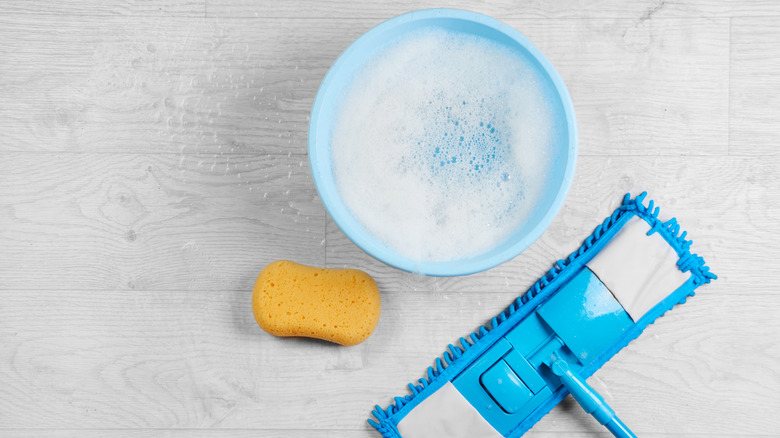Cleaning Agents You Should Seriously Avoid Using On Vinyl Floors
Bleach has a wide variety of uses and is incredibly popular, raking in over $700 million in sales in the U.S., according to Statista. However, while it is a good choice for certain types of cleaning, such as cleaning specific countertops or giving your toilet a refresh, it is not so suitable for cleaning your flooring — in particular, vinyl flooring. Bleach and vinyl do not mix at all, and it's a combination that you should never use unless you want to fork out a hefty sum to replace the damage.
But that's not the only cleaner that can ruin your vinyl. Detergent can also wreak havoc on your planks, as can any ammonia-based cleaner. If you are the proud owner of a vinyl floor, you may be wondering why. After all, it's meant to be a sturdy material, designed to withstand decades of use and abuse. And it definitely can — you just have to use the right cleaning supplies. Let's take a look.
Bleach and vinyl don't mix
So why do bleach and vinyl flooring clash so much? While you likely already know that bleach is a strong cleaning agent, corrosive chemicals such as sodium hypochlorite can end up damaging your vinyl flooring by breaking it down so it peels. The protective layer will begin to flake off, leaving behind black peels. Of course, this likely spells disaster for your vinyl flooring and may cause damage that can't be fixed. Instead, you will have to remove the damaged planks and replace them with new ones. Even if you only want to use it once or twice, it's best to avoid this unfavorable combination altogether.
When using strong cleaning agents of this nature, always ensure that you use your common sense and use caution. Even if your friends or family say it's fine to use, it's not. This way, you can keep your vinyl flooring in good condition.
You should also avoid using detergent
Aside from bleach, there are other items and cleaning agents you should never use on vinyl flooring. For example, you should never use laundry detergent on your vinyl flooring as it creates a dull finish, or anything ammonia-based, which can create cracks and bubbles. However, that's not all. Speaking to Homebuilding & Renovating, Inga Morris-Blincoe, General Manager at Lifestyle Floors, explains what else you should take note of asides cleaning agents: "Never use abrasive scourers [on your vinyl floor] as this could compromise the wear layer, or even scratch and permanently dull the surface." Likewise, she also notes that you should "never use rubber mats on vinyl floors. This can cause a chemical reaction, which could lead to permanent and irreversible yellow staining."
If you're feeling unsure about a particular cleaning agent, then it's always best to enquire with Google or ask a cleaning professional. Any second-guessing could end up ruining your floor, and nobody wants that. However, if you're in a hurry, there are some easy ways to clean vinyl flooring, such as using mild dish soap. This cleaning agent tends to be kinder.


